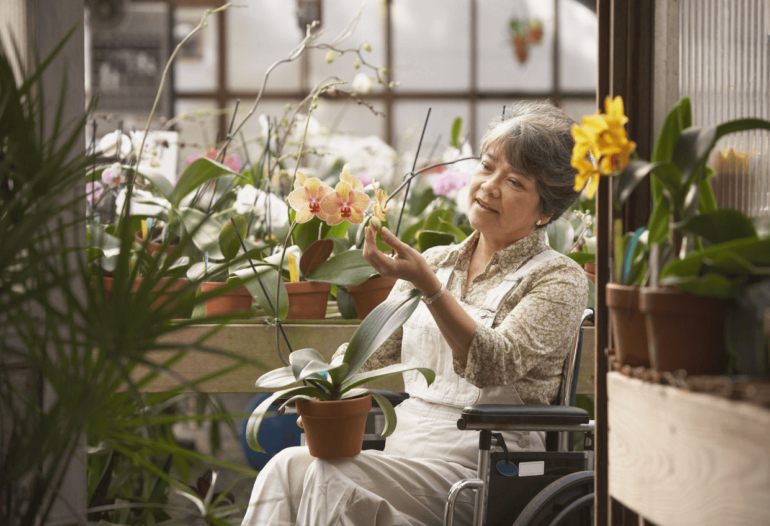A great way to start living a healthy life is through gardening, as it also gives you the right kind of physical and mental activity.
But for people with disabilities, gardening is more than just a hobby. This can be a lifesaver for them as it provides numerous health benefits that cater to their daily needs. Read on to explore the details:
Improves Mental Well Being
Holistic therapy aims to heal a person’s mind, body, and soul. It is a comprehensive approach that is also suitable for people with disabilities.
Karina Wolfin, a gardening equipment rentals provider from Direct Appliance Rentals, notes,” Gardening is an excellent complement to a holistic treatment as it promotes a sense of responsibility and purpose. You have to water the plants until the soil, add fertilisers, remove pests, move them inside during harsh weather, etc. The fact that a living organism depends on your care is also an excellent motivation to get up and be healthy.”
Spending some time in nature helps you connect to other living things, which can trigger the release of dopamine and serotonin.
Supports Physical Fitness
As obvious as it looks, gardening requires physical work. There are a lot of digging, bending, and sweating that is involved. It also allows being out in the sun and getting closer to nature.
Based on studies, it shows that gardening is equivalent to a high-intensity workout. This helps to improve your muscle and joint performance, blood circulation to release endorphins and burn calories.
There are vertical gardens, raised flower beds, and modified tools and equipment for individuals with reduced physical capabilities. Depending on their condition, they can choose the type of plants they’re willing to take care of.
There are service providers in Australia that provide gardening maintenance for people with disabilities. They can assign an attendant who can assist you with your gardening tasks.
Promotes Social Life
Staying at home for a long time kills your social vibe and cause anxiety, depression, and many other health problems. Thankfully, even a tiny garden can fill in the void of cancelled social gatherings due to the COVID-19 crisis.
A study by Princeton University published last May 2020 found out that home gardening’s emotional effect is similar to walking, biking, or dining out.
Final Thoughts
While gardening seems to be a usual task for ordinary people, it is different for people with disabilities. Gardening is one of the safest, most accessible, and most beneficial activities for them. It improves their communication and social skills, boosts their confidence, develops a set of new skills, supports physical fitness, and instils a sense of responsibility. Gardening is also one way to ensure food security and make communities more sustainable and livable.
So if you have a physical condition or know someone who might enjoy gardening, let us know!



